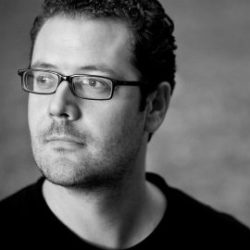Irene Taylor Brodsky grew up with two deaf parents, Paul and Sally, and she has been providing thoughtful commentary about the deaf experience ever since her first award−winning Sundance film, Hear and Now (2007). Her latest rumination on the subject, Moonlight Sonata: Deafness in Three Movements, involves her son, Jonas, who at age four was nearly deaf himself (a recipient of his grandmother’s gene), but regained his hearing after having cochlear implant surgery.
The cochlear implants allowed Jonas, the younger member of the family, to make sense of the sounds that he was hearing and learn to speak and communicate clearly. Meanwhile, the experience of hearing was completely different for Paul and Sally, who had the same procedure done at later ages. They had lived in silence for so long that their brains were less able to make sense of sound in meaningful ways. The film is a very personal and vulnerable memoir about the nature of deafness. Through the process of documentation, the film illuminates a very poignant testimonial theme. This theme is teased out and illuminated from three angles, through Jonas’ story, Paul and Sally’s experience, and finally, the case of Beethoven.
In the film, Jonas expresses the desire to learn Beethoven’s “Moonlight Sonata,” a piece that was famously written while the great composer was himself going deaf. At one point while receiving lessons from his piano teacher, he is reprimanded for making a habit of playing a wrong note in a series of measures. “If you keep playing it that way,” she says, “the mistakes become the music.” The piano teacher, of course, means this in a negative way, but the larger philosophical question of what, in life and creation is “mistake,” and what is “music” becomes the central reflection of the narrative. For example, did Beethoven compose “Moonlight Sonata” in spite of his deafness, or is the piece in some sense more rich and beautiful because of his deafness?
While the medical cause of Paul’s deafness is known to the family, it was never clear why Sally was born without hearing, and so a DNA test is arranged. During the ensuing conversation about the results of the test, the geneticist appears to make the same presuppositional assertion as Jonas’ piano teacher. Sally’s deafness, she says, is the result in a “typo” in her genetic code. It is, in other words, an anomaly, a mistake. Sally, for her part, pushes back, and wants to say that this is not a “mistake,” but rather that it is just how things are.
Deafness then, for Irene Taylor Brodsky, for Jonas, for Paul and Sally, and certainly for Beethoven is only an apparent mistake, and in these three “movements,” they are examples of mistake−turned−music. Perhaps after watching this film, we get the sense that this anomaly transcending phenomenon is not only true of deafness, but true of apparent mistakes more generally; or as Irene herself put it in a post screening discussion: with, “a little bit of faith… mistakes will become your music.”

